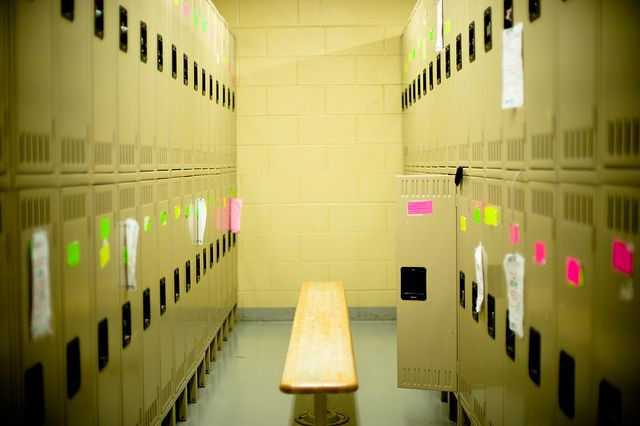The 'Cool Kids' Grow Up To Be Adult Burnouts: How Early Popularity Can Kill A Child’s Future

As a kid, you were probably given boatloads of advice telling you not to do the very things you thought could give you exactly what you wanted. These were things like drugs, sex, getting into trouble. And if you were like most high school students, what you wanted was to be cool — and more specifically, for other cool kids to notice you were cool.
Well, it turns out whoever doled out that advice was, in fact, right. And now cautious parents have research on their side, as a new study from the University of Virginia has found that when cool kids grow up, their flashy wild sides lose their luster. Their social standings suffer, and often at the expense of their personal and professional livelihoods.
Teenage years are fraught with worry, with large-scale decisions like which colleges to apply to routinely taking a back seat to more minor, urgent concerns, like which outfit to wear the next day. These relatively major social choices compel kids to engage in risky, sometimes life-altering behavior. None of this is necessarily new information, not to parents at least, but Joseph Allen, the leader of the new study, believes learning how teenagers come to manifest certain behaviors and express them over a long timeline, is helpful for teaching kids a safer way to be cool.
“Gaining acceptance by being a good friend, supportive, honest, thoughtful…are all adaptive ways of attaining popularity,” Allen told Medical Daily. “Doing so by pretending to be someone you aren’t doesn’t work so well in the long run.”
In fact, it’s pretty awful. Allen and his colleagues gathered data on 184 teens from age 13, when they were in seventh and eighth grades, to age 23. As they followed the cohort, they learned from the peers and their parents a wealth of information regarding the kids’ drug and alcohol use, consequences of that substance abuse, criminal behavior, and several measures of self-perception and social competency — popularity, essentially — in regards to others. At age 13, they asked subjects to nominate up to 10 people in their grade with whom they would “most like to spend time on a Saturday night.” At 23, they asked how their current relationships were faring, and why those that failed had done so.
Patterns emerged immediately. The kids who ran their high schools at 13 tended to drink more, get into trouble more, have more sex, and importantly, sought out popularity. Unlike their less popular peers, these kids were actively seeking high school fame. In their quest, they picked up behaviors they thought would make them seem more mature. The problem is that people mature, too. And as the cohort got older, these mature behaviors got a forceful shove into full-blown recklessness.
“We suspect they may have then engaged in more and more extreme behaviors trying to gain peer approval,” Allen said. In other words, “those who got approval for drinking at 13 had to get wasted multiple times and engage in more extreme acts to try, unsuccessfully, to gain approval in later years.”
The very phenomenon your parents warned you about came true. The older the cool kids got, the less appealing their destructive behavior became. Worse, this destructive behavior only grew more destructive. At 22, the formerly cool kids used drugs and drank far more heavily than less popular students; their romantic relationships failed more often; and they were more likely to have a criminal record.
Allen says these findings paint a picture of middle school and high school where certain kids, for one reason or another, see social standing as the pinnacle of achievement. And the commodity to get there is maturity — a valuable resource that, in a child’s early years, is as rare as it is precious. The constant struggle to be older, to seem wiser, to be taken more seriously — these factors all compel a select group of (usually good-looking) teens and pre-teens to seek out behaviors that, to their minds, are by nature “mature.”
It’s only once they reach their true adult years that they find out, if they ever do, that traits like responsibility, honesty, humility, and compassion are signs of maturity. And none of those qualities, they realize — sometimes too late — can be found at the bottom of a bottle.
Source: Allen J, Schad M, Oudekerk B, Chango J. What Ever Happened to the “Cool” Kids? Long-Term Sequelae of Early Adolescent Pseudomature Behavior. Child Development. 2014.



























